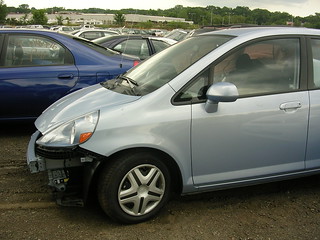The terminology in an auto insurance policy can be quite daunting. Sometimes, it can confuse the best of people. This article can help you to better understand all the terms that insurance agents throw at you. Understanding what the terms really mean can help you to make more informed decisions about your auto insurance.
Make sure you shop around before buying your insurance. There are different formulas that every company uses to determine your insurance premium. Investigating several companies will help you snag the best rate, potentially saving you a decent amount of money.
It is a common misconception that the cost of auto insurance automatically drops as the driver reaches 25 years of age. The truth is that premiums start to decrease when a person reaches the age of 18, assuming that he or she is a safe driver.
They type of vehicle you buy will play a huge role in the price you pay for your insurance policy. Know that your bill will reflect the choice you make when selecting a vehicle. If saving money is your primary concern, a modest vehicle will be your safest choice.
Geographical location can have either a negative or positive affect on your insurance premiums. Some areas have higher insurance rates because of theft.
It is not a good idea to buy your teenager a car. Have the teenager use a family car instead. You’ll save money by adding a teenage driver to your current insurance policy. Certain things, such as being an honor roll student or having good grades, might get you a discount.
Take the time to go over the list of discounts completely, in order to ensure you take advantage of these price savers. The amount you can save with discounts can be shocking.
Tickets and points on your driving record can significantly increase the cost of your auto insurance. Conversely, the expiration or removal of those items from your record can also lower the rates you pay. Make sure you get a new quote after your old infractions expire to take advantage of your lower rates.
Search for rates from a variety of companies before selecting the auto insurance that works best for you. This is the only way for you to determine who is offering the best value for the best plan.
Many companies give discounts to people who drive less. Discounts, such as these, make driving less worth it when it comes to insurance.
Always try to remember the cost of insurance each month. Don’t forget that insurers have a more favorable view of safer cars. Sport cars tend to lack the safety that bigger family cars have. When purchasing a car, you must also account for monthly insurance premiums in your budget.
There should be a “consumer complaint ratio” for many insurance companies in your state. This number reveals the percentage of complaints for a given provider.
Even if your driving record isn’t perfect, there are ways for you to negotiate a better insurance premium. For instance, if you get a ticket or have an accident that results in a rate increase, you might be able to get it reversed if you complete a defensive driving course. Some companies, like Progressive, offer their customers the option to temporarily add a chip to their car which will monitor their driving habits everyday, and if those habits show responsible driving, they will lower your rate.
Safety Features
Carefully fill out the auto insurance application form, listing all of you car’s safety features to qualify for the lowest rate. Items that can prevent injury and theft, such as alarms and airbags, can qualify you for discounts on you car insurance. Consider installing additional safety features to an older automobile.
Infrequent drivers, or those with a short commute, may qualify for a low mileage discount on their auto insurance. Usually you have to keep your mileage under 7,500 for a year in order to qualify for this discount. You can also get a commuter discount if you consistantly use public transportation.
This article will give you a foothold to start understanding your policy and what actions you should take to improve it. The key to buying auto insurance is educating yourself.

 GuestBlogger
GuestBlogger 
 Posted in
Posted in  Tags:
Tags: 
